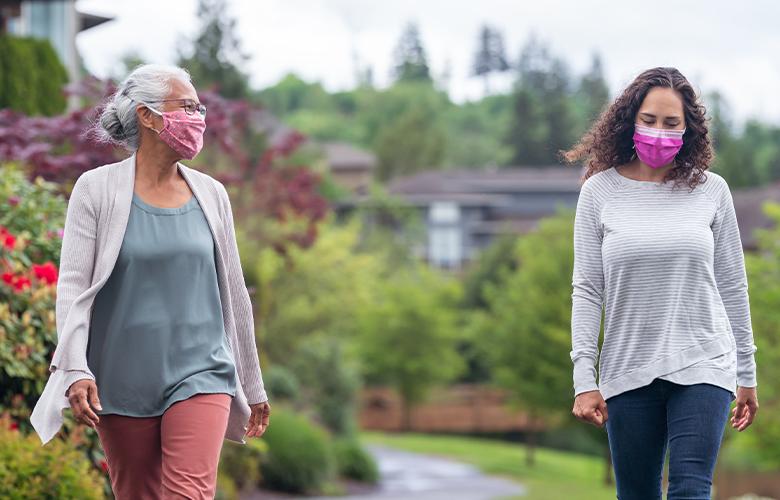
As the COVID-19 pandemic stretches into the winter, researchers, practitioners, and stakeholders continue to worry about the secondary impacts of COVID-19, such as social isolation, economic insecurity, and job loss. These conditions may have long-term effects on the behavioral health of Americans, including mental illness, substance misuse, and suicide risk.
During the holiday season, many of us may be struggling with unusually exacerbated isolation and additional losses around school, work, family, and normalcy. We know that substance misuse, suicide, and poor mental health share risk and protective factors that are impacted by the pandemic. Individuals’ personal losses, deaths of loved ones to COVID-19, and feelings of isolation during this time can increase risk for mental illness, substance misuse, and suicide. And the circumstances that help protect against these three problems—for example, feeling connected to other people—can seem hard to find during the pandemic.
To bolster protection against behavioral health issues during this time, it is important that we support one another in new ways. A 2020 Harris Poll found that while over 40% of U.S. adults reported struggling with mental health during the pandemic, 52% also reported being more open to discussing mental health. This suggests the time is right to act now.
To that end, we’d like to encourage all of us to look after one another and #bethere by helping to decrease loneliness and encourage healthier coping. Here are some tangible ways to help:
- Find creative ways to spend time together:
- Offer to take a walk outdoors, wearing masks and maintaining physical distance
- Set up your devices for virtual activities with loved ones, such as craft making, story reading, working out, and movie watching
- Play an online game with family members (jackbox.tv has games for all ages!)
- Create an outdoor scavenger hunt. Or, if the weather is frightful, do one indoors.
- Model good self-care by noticing your stress level and engaging in healthy coping techniques. Check out these links on mindfulness and stress management.
- Take time to notice when others are struggling. Ask your family, friends, and neighbors how they are feeling.
- Know the warning signs for substance misuse, poor mental health, and suicide risk. If you see these warning signs, use the #bethere campaign conversation tips and #Bethe1To campaign action steps to talk with someone struggling with their mental health or thoughts of suicide.
The 2020 holiday season has brought many challenges. But it has also provided us a time to discuss our well-being with one another as never before. Let’s use this opportunity to #bethere.
Rachel Pascale, Kristen Quinlan, Shawna D. Hite-Jones, and Gisela Rots are members of EDC’s Suicide and Substance Misuse Working Group. The group identifies opportunities for collaboration across suicide and substance misuse, and develops tools to aid practitioners.
Add new comment